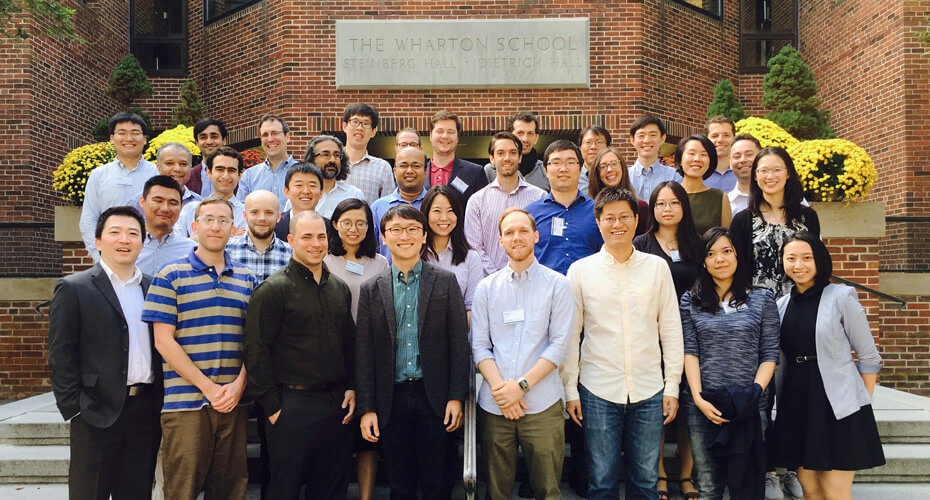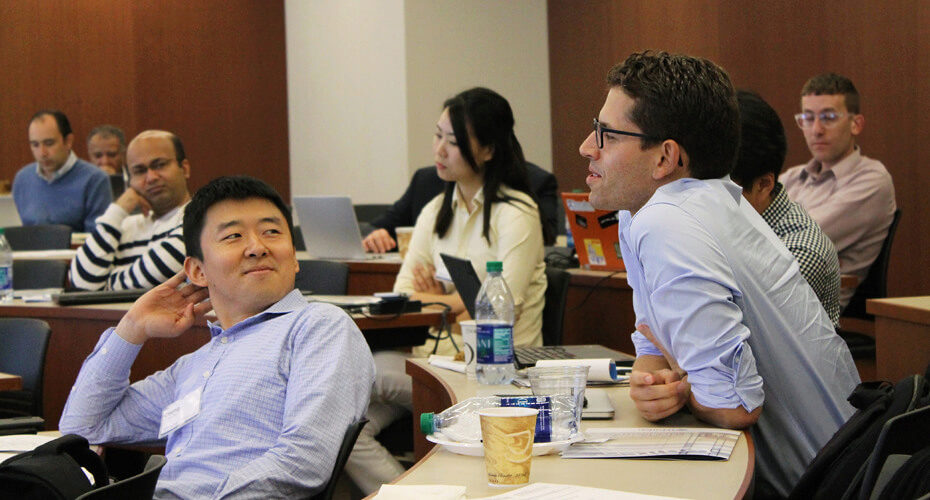
For PhDs interested in innovation here at the Wharton School, the Mack Innovation Doctoral Association has been a successful story. So we organizers wanted to expand that type of interdisciplinary environment to PhD students from other schools. After a year of hard work, the inaugural Wharton Innovation Doctoral Symposium (WINDS) took place in October 2017. The event exceeded our highest expectations!
From the beginning, the conference attracted great interest from students both nationally and internationally. We received over 100 applications spanning each of the four conference tracks: economics and policy, finance and accounting, strategy and organization, and technology and operations. The extraordinarily diverse applicant pool originated from more than 60 universities including institutions in Australia, Austria, Canada, China, Denmark, France, Germany, India, Italy, Luxembourg, the Netherlands, and the U.S. This high level of interest in such a new conference somewhat surprised us. It shows that, by providing a platform for students with different perspectives and from varying disciplines, we filled a high-demand empty niche in the field of innovation research.
We designed a rigorous review process in which each paper was evaluated at least twice by different reviewers in their field of study. In the end, we invited 18 high-quality presenters, 15 of whom came from other peer institutions. To emphasize the interdisciplinary nature of the symposium, we organized sessions so that each presenter was paired with others on similar topics but different fields. This was a strength of the symposium and was really welcomed by participants. According to one participant, this “made everyone have a better understanding of how to think about innovation.”
The quality of the accepted papers and the interdisciplinary nature of the symposium laid the foundation for a productive and collegial conference. We had great participation across Wharton and other schools at Penn with more than 60 people in attendance. So many people were actively participating that the unanswered questions kept pouring in even after each Q&A session, with the lively discussion continuing unabated through the breaks.

Of course, the most important criterion to evaluate the symposium is the feedback from participants and presenters, which has been overwhelmingly positive. “WINDS is the best student-run conference I have ever attended,” wrote Cheng Gao, a doctoral candidate in strategy at Harvard Business School. “It provides a wonderful forum for learning, exchanging ideas, and meeting intellectually diverse researchers in a fun and collegial environment.”
“Not only was WINDS a risk-free space to share and explore our evolving research ideas, but it proved to be an intellectual delight,” added Junghee Lee, Doctoral Candidate in Operations Research at UCSD. “It was so inspiring to learn from my peers and their diverse perspectives on innovation. I’m looking forward to staying connected with this community for future laughs, insights, and collaborations!”
We feel that this event, by involving a global doctoral community, was one more step towards making Wharton the center of innovation research. We hope to make WINDS a regular event and will strive to make it even better in the future. Some of the changes we are thinking about include altering the schedule to fit more presentations into the second day, adding a track on marketing, and increasing the number of presenters to allow for even greater diversity. We plan to advertise the symposium even more broadly to further increase the number of applications, which will help to maintain the high standard we have set in this first iteration of WINDS.
As the organizing team, we would like to thank the Mack Institute, the Wharton School Doctoral Programs and GAPSA for their generous support for the symposium. We would also like to thank all the reviewers and other people at Wharton and beyond who worked hard to make the event happen. Without this broad support, none of this would have been possible.
Conference organizers Aymeric Bellon, Qingqing Chen, Andrea Contigiani, John Eklund, Tong Liu, Bowen Lou, Lisa Tang, and Hongyu Xiao contributed this post.



